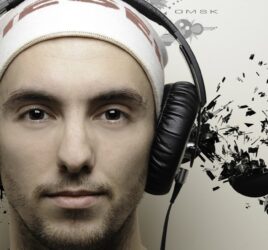
Duo-interview: Research on psychosis – Bridging the gap from theory to practice
At the Department of Psychology of the University of Groningen, two enthusiastic scholars focus their research on cognition of patients with psychosis. Both are not only academically very active, but also successful in combining their appointment as a scientist at the University of Groningen with an appointment in the clinical field. Reason enough for Mindwise to invite these two scholars for an interview to learn from their experiences and ideas.
Marieke Pijnenborg is Professor of Clinical Psychology, in particular Psychotic Disorders. Besides, she heads the Research Department of Psychotic Disorders at GGZ Drenthe. Lisette van der Meer works as an Assistant Professor at the Department of Clinical and Developmental Neuropsychology and as a senior researcher at the Department of Rehabilitation at Lentis Psychiatric Institute.
Mindwise: You both do research on cognition of patients with psychosis. What exactly is your research focusing on? In what way are your research findings relevant for the everyday life of patients?
Marieke Pijnenborg: My research focusses on social cognitive processes in psychotic disorders, in other words, on the way people with psychotic disorders make sense of themselves in relation to others. My research ranges from fMRI studies that examine the neural basis of social cognitive processes to studies on potential new treatments for people with psychotic disorders that aim to stimulate social cognition. Examples of potential treatments are cognitive remediation for patients who are completing an education, virtual reality to train emotion perception and theory of mind, and psychomotor treatment with elements of kickboxing to prevent victimization.
Lisette van der Meer: My research is focused on the group of people who are most severely impaired in their daily functioning by their psychiatric illness and their (often severe) cognitive deficits. With my studies I aim to improve the functioning of people with psychosis by improving cognition (cognitive remediation), bypassing cognitive deficits (cognitive compensation) and enhancing elements of social cognition (self-reflection). Cognitive impairments can have a major impact on daily life functioning and skills (e.g., cooking, organizing the household, personal hygiene), but also on community participation (e.g., school and work) and on the way people see themselves (personal identity). The clinical relevance of my work lies in the (social) cognitive rehabilitation interventions that my research team and I develop and evaluate. These interventions are primarily developed for patients who are considered most severely impaired in daily functioning.
Lisette van der Meer asks Marieke Pijnenborg: Your research focuses mostly on people with psychotic disorders, as does my research. Sometimes I think that our research would benefit from using impairments/struggles in daily functioning as a starting point for intervention studies rather than diagnosis. Thus, we might want to take a more trans-diagnostic approach in terms of the people we include in our trials. Symptoms often overlap between diagnoses, at least to some extent, as do daily life impairments such as problems in social interaction, planning, and organizing one’s household or work. For example, your kickboxing intervention may also be very beneficial for the empowerment of people with anxiety disorders. It may be easier to implement new interventions if more patient groups can benefit from them. Also, if the effects of psychosocial interventions are more generalizable across diagnoses, it may also be more value for (society’s research) money. I wonder how you feel about this?
Marieke Pijnenborg: I also think that we should focus on participation and quality of life as the most important and relevant outcome of our research, since this is what really matters. Diagnostic labels are irrelevant, especially when your aims are irrespective of symptoms. So yes, I agree!
Mindwise: As your research is relevant for clinical practice, what are the challenges in bridging the gap between science and the applied field?
Marieke Pijnenborg: People in mental health care are often hard-working and dedicated, but due to e.g. budget cuts and bureaucracy they often do not have time for innovation. Moreover, treatment evaluation according to current standards takes years of work and lots of energy. And in case of positive results, it will again take years until a treatment is included in treatment guidelines (these are only updated once every couple of years). Finally, researchers do not always invest enough time into implementation. Often, we have many projects running and after finishing a trial the next one is already demanding our attention.
Lisette van der Meer: In general, the implementation of new interventions or routines is very difficult. Only 10% of evidence-based interventions is successfully implemented in routine care! To increase this percentage, we designed a program to establish better implementation of psychosocial interventions. We are currently testing this program in a large multicenter randomized controlled trial. Of course, there are factors such as shortage of money and personnel. But I think educating staff and changing their behavior may be one of the biggest challenges in bridging the science-to-service gap. Therefore, communication with our colleagues in the clinical field about innovations, and study results and how they and their patients may benefit from this, is very important. By developing and evaluating interventions in close collaboration with professionals, patients and their relatives, we (so both academics and clinical professionals) have the best chance of developing useful and feasible tools together that will actually be implemented.
Marieke Pijnenborg asks Lisette van der Meer: Your research also focusses on implementation. If you could change just one factor in clinical practice to facilitate implementation (whether at the micro, macro, or meso level), what would it be?
Lisette van der Meer: My initial thought when hearing your question was, I would give people more time. From our research, it is clear that a lack of time is one of the most important reasons why it is difficult to implement something new into clinical practice. However, on second thought, it may be more fruitful, if I would be able to empower staff members so they have more confidence in their own capacity when it comes to applying new interventions. If you feel confident, then you may spend less time in preparing for the tasks that come along with using the intervention. People may be able to do more tasks “in between” other duties.
Mindwise: On the basis of your experience, what is the biggest problem of patients with psychosis that needs to be addressed by research?
Marieke Pijnenborg: I feel psychotic disorders still have many enigmatic aspects that warrant further fundamental research. However, my personal view is that research aiming to increase participation and social inclusion should be prioritized.
Lisette van der Meer: I agree with Marieke. There are many open questions with regard to our fundamental understanding of psychosis. However, the major struggle of people with psychosis is how they can re-integrate into society and regain their self-confidence. So our research should focus on these aspects.
Note: Image by Sander van Lien, with Marieke Pijnenborg on the left and Lisette van der Meer on the right.



